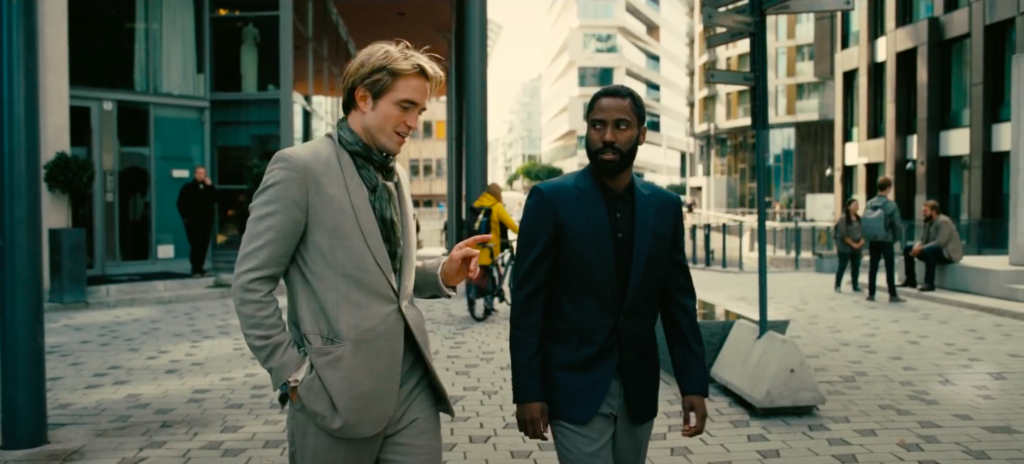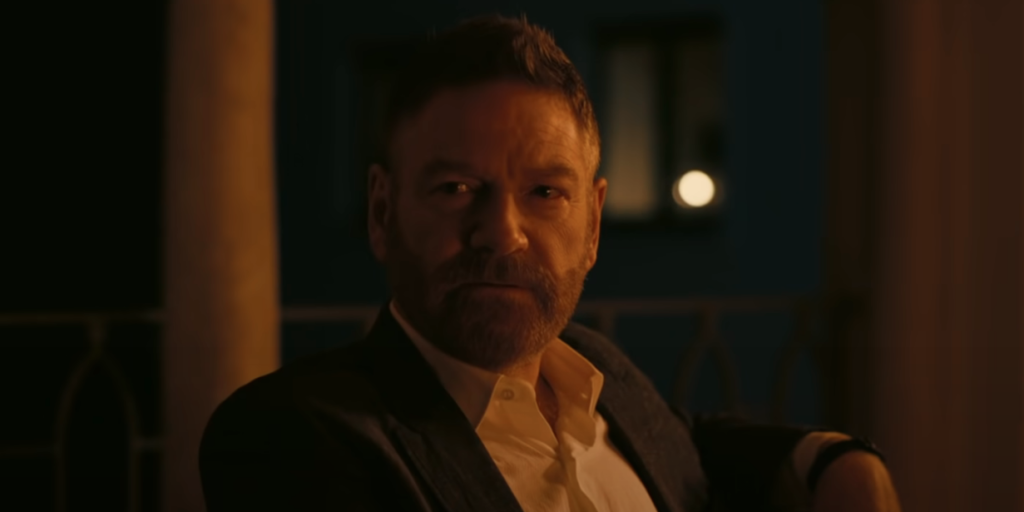Christopher Nolan, the fastidious fabulist of the thinking man’s blockbuster, has established a distinct corpus which revels in the mechanics of spectacle. His penetration of the mainstream is all the more remarkable for an auteur who is equal parts Georges Méliès and Stanley Kubrick in his clinical showmanship. If part of his extravagant flair lies in a constant experimentation with chronological storytelling, then it should come as no surprise that Tenet, his eleventh feature film, is a big-budget, multi-genre hybrid tribute to time travel. While this isn’t Nolan’s first foray into the subject (it played a crucial role in the climax of his 2014 sci-fi weepie Interstellar), Tenet nevertheless does to the space-time continuum what Inception did to the realm of dreams. Whether you find that comparison exciting or aggravating will depend entirely on how much of Nolan’s quirks you can stomach, yet even the most stalwart devotee might find themselves tested by Tenet.
What’s surprising about the film is how little time travel there is in the first half. It should be mentioned up front that the preferred nomenclature in this universe is “inversion”, a phenomenon witnessed firsthand by a CIA operative (John David Washington) during a covert rescue mission at a Ukrainian concert hall. He is narrowly saved by a bullet which seems to burst from a pre-existing hole, and before too long finds himself entangled in a highly secretive project whose participants identify one another through entwined fingers and the word “tenet”. With a mysterious companion named Neil (Robert Pattinson) in tow, our nameless Protagonist eventually identifies his antagonist, an Anglo-Russian oligarch named Andrei Sator (Kenneth Branagh) whose goal, based upon the ominous “detritus of a coming war” scientists keep finding, is seemingly global annihilation.

Sator’s motivations, as well as his nefarious plans to instigate Armageddon by rupturing the space-time continuum, are made gradually clear as the film burrows deeper into espionage intrigue. What his exorbitant wealth belies is a psychotic possessiveness, nowhere more apparent than in his relationship with his estranged wife Kat (Elizabeth Debicki). She remains in what is a loveless marriage under threat of never seeing their son, Max (Laurie Shepherd), again. Her prison is constructed, primarily, of luxury yachts and ornate dinner parties. Indeed, there is a kernel of social critique here of the post-Cold War global economic conditions which aid men like Sator in amassing frightening levels of power. Yet Nolan confines this thread to one of many instances where characters walk in slow, measured steps while spouting exposition at a rapid-fire clip.

What attitude Nolan’s film bears toward privilege is one that permits the director to shoot wherever his financiers deem feasible. The plot of Tenet bounces all over the world, from Mumbai to Oslo, marked by high-level heists involving priceless commodities. A major set piece revolving around a forged painting kept in a free port is just one example of Nolan utilizing markers of wealth to indulge his predilection toward destroying large machinery without the aid of CGI. This tendency has certainly produced some captivating action scenes in his filmography. Once inversion figures more heavily into the plot, the film generates some imagery, lensed by regular cinematographer Hoyte van Hoytema, that measure up to Nolan’s most spellbinding exercises in clockwork precision. But like The Dark Knight Rises, Tenet seems at odds with its own criticism of authoritarian might, unable or simply uninterested in resolving its moral and political complexities beyond the shifting of power from clear-cut villains to heroes.

Rather, Nolan reverts to his long-held interest in the conflict between free will and fatalism. The destruction Nolan’s characters wreak upon others and themselves can be determined either by external forces or personal failings, though in his best work like Memento the distinction between the two is not easily discernible. Neil’s mantra of “what’s happened, happened” is the most explicit iteration of this thematic strain, one which he clarifies is not meant to inspire apathy but rather further the resolve of those fighting for justice. Nolan has expressed this sentiment to stirring effect before, even to the point of syrupy mawkishness. But what’s dispiriting about Tenet is how this familiar refrain ends up feeling like just one of several overdetermined story beats. Nolan’s decision to strip the protagonist of a backstory and even a name has some conceptual merit as a tweak on Campbell’s monomyth. But despite his occasional quips and charisma as a leading man, Washington can’t overcome the limitations of Nolan’s script to be little more than a conduit for the plot’s cataclysmic developments. Like the rest of the talented cast, he is dwarfed by the film’s pseudointellectual pyrotechnics, leaving any gestures of camaraderie and redemptive heroism feeling curiously rote.
In several respects, Tenet has an unenviable position as the first major film to enter a marketplace severely impacted by a global pandemic. After all, who in the world could live up to the hype, and the hope, that their latest film will “save the cinema”? But taken on its own terms, outside of those expectations, Tenet ultimately amounts to a fitfully entertaining puzzle whose final solution paints a disappointingly dull picture. “Don’t try to understand it,” one character assures both us and the protagonist. “Feel it.” That second recommendation is easier said than done.
